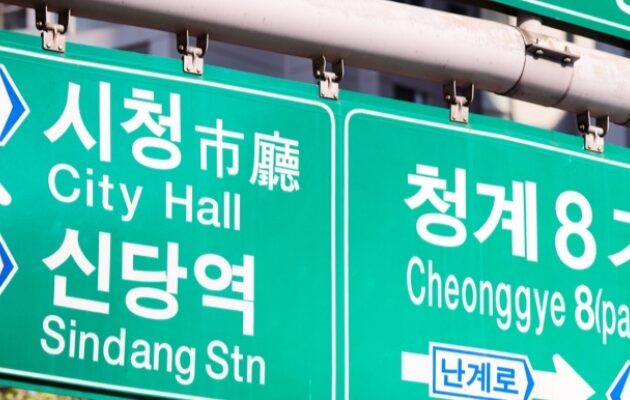Why Learn Korean
The Language
Korean is the official language of both South and North Korea, which have a total combined population of around 73 million (50 million in the South and 23 million in the North). Korean is also spoken in large ethnic Korean communities in China, Japan, Central Asia, and in the United States where 1.7 million Korean Americans live. 1.1 million are foreign born, and more than 50 percent have limited English proficiency.
South Korea’s Rich History and Culture
Korea has a long history and rich cultural traditions, which makes it a fascinating place to study. It has played a vital role in East Asian history—notably through interactions with China and Japan—such that a better understanding of Korea is necessary to fully understand East Asia.
In more recent times, there has been growing world interest in Korean popular culture—the so-called “Hallyu,” or Korean Wave. Going beyond love of television-dramas, movies, and K-Pop, the Korean Wave reflects a desire to fully appreciate Korean popular culture and lifestyle through popular media. To some degree, Korean lifestyle and culture are becoming part of our own culture. By learning Korean, we expand our awareness of a vibrant culture that is both modern and traditional.

Korean Tradition
While South Korea is a modernized country, it remains a deeply traditional country where knowledge of Korean and South Korean culture and language is a huge advantage to anyone interested in a future in trade, business, commerce, economics, tourism, or international relations in the region. Korea also highly values trust and interpersonal bonds in its business deals—another reason why knowing the local language is particularly valuable.
Career Opportunities
South Korea’s high-tech, service-based economy is the world’s 11th largest economy, sixth-largest exporter, and the United States’ sixth-largest trading partner. While already impressively positioned in the global economy, Korea is projected to be the world’s seventh-biggest economy by 2030. Samsung, Kia, Hyundai, LG, and Lotte are just a few of the country’s world class brands, many of which have operations stateside. Thousands of U.S. companies are actively engaged in doing business in Korea as well as catering to the United States’ large Korean-born population. Web developer, video game localization specialist, IP lawyer, logistics specialist, bank branch manager, project manager, police officer, and phlebotomist are just a tiny sample of U.S. job postings to be found on any given day aimed at those with Korean language skills.
Government Careers
Another reason to learn Korean revolves around the issue of international security. Since 1953 and the end of the Korean War, North and South Korea have been separated by the 155-mile-long Demilitarized Zone (DMZ). A communist regime and nuclear threat, North Korea remains one of the world’s biggest hot spots. For anyone seriously interested in diplomatic relations and international security involving the region, Korean is essential to learn.
It’s among the reasons Korean is highly prized by agencies ranging from the CIA and the Department of State to the U.S. Military and the NSA, all of which actively seek out candidates who can speak Korean and know the workings of Korean culture. Korean is a designated critical language—an assignation given to languages that are deemed of strategic importance to U.S. national security—and numerous government-funded scholarships are available to those who pursue Korean language studies.
Proficiency: A Mark of Distinction
While interest in Korean language studies is on the upswing, just over 12,000 college students enrolled in Korean language classes in 2013. That compares to the almost 800,00 students enrolled in Spanish and close to 198,000 in French. Learning Korean is an impressive and unique accomplishment that will open many doors.
Adapted from Languages at the University of Wisconsin–Madison
Scholarships and Grants
Asian Pacific Fund Scholarships
The Fund administers 12 scholarship programs that provide financial support to undergraduate and graduate students; criteria range widely and include academic major, ethnicity, parent’s occupation, and place of residence.
Critical Language Scholarship (CLS) Program – Korean
Run by the U.S. Department of State, the CLS Program is a fully funded overseas summer immersion program promoting the study of foreign languages, including Korean.
Freeman Awards for Study in Asia (Freeman-ASIA)
Administered by IIE, Freeman-ASIA Scholarships provide need-based funding to U.S. college students for study abroad experiences in East or Southeast Asia.
Korean Government Scholarship Program (KGSP)
KGSP awards help fund undergraduate or graduate degrees, including language training, at Korean universities. Applicants should apply through the Korean Embassy in their home country.
National Security Language Initiative for Youth (NSLI-Y) Program (+ high school)
Sponsored by the U.S. Department of State, the NSLI-Y program offers high-school students and recent graduates merit-based scholarships for overseas immersion opportunities to study less commonly taught languages, including Korean.
Interest in Korean Culture & Music Sparks Increase in Enrollment
Looking for a Korean Program?
While initially developed to report language enrollment figures, the MLA database provides a comprehensive listing of postsecondary language programs, allowing you to refine your results by language, geographic area, and/or type of institution. The data is based on MLA’s most 2013 survey.
To Get Started:
- Select your language(s), up to eight
- Narrow your search, as desired, and click “search now”
- Expand your findings to reveal specific schools offering programs in your language by clicking on the small triangles on your results page




